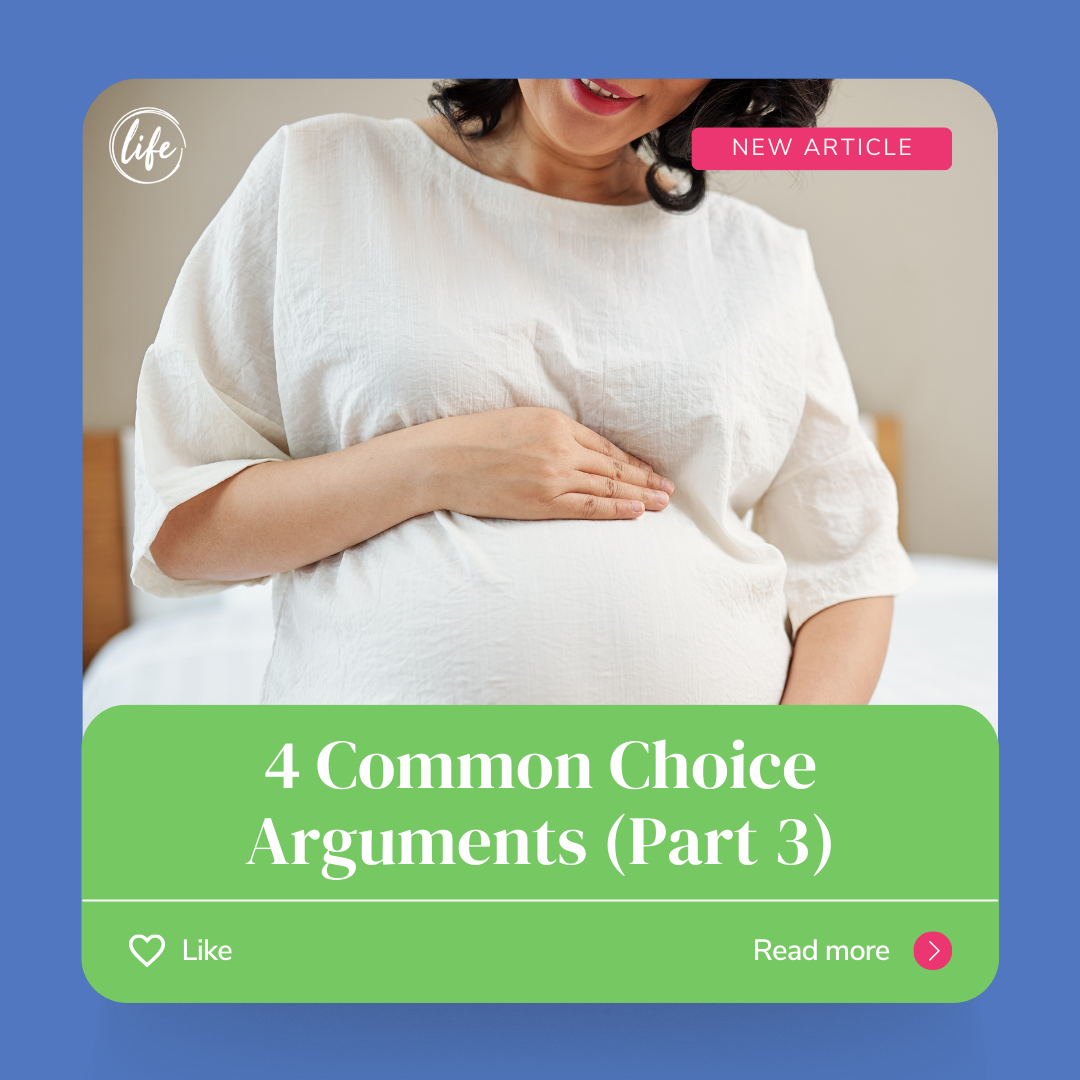
 Do you believe in protecting the lives of the unborn but struggle with articulating your arguments? Here are a few common choice arguments and our responses:
Do you believe in protecting the lives of the unborn but struggle with articulating your arguments? Here are a few common choice arguments and our responses:
Abortion Is Healthcare
Merriam-Webster Dictionary defines healthcare as the “efforts made to maintain, restore, or promote someone’s physical, mental, or emotional well-being especially when performed by trained and licensed professionals.” Choice proponents insist that this includes abortion. However, abortion does not “maintain, restore, or promote” anyone’s health and well-being.
Pregnancy is not a disease state. Pregnancy is actually an indicator of reproductive health. Pregnancy is also temporary with or without medical intervention. Abortion takes an innocent life. Abortion itself poses many risks to a woman’s physical health as well. Post-abortive women may experience complications such as damage to the womb or cervix, excessive bleeding, infection of the uterus or fallopian tubes, scarring of the uterus, sepsis or septic shock, uterine perforation, or even death.
A 2004 study from Finland, found that deaths following abortion were over three times higher than after childbirth. Furthermore, a 2002 U.S. study by Dr. David Reardon linked Medicaid treatment records and death certificates and found significantly higher rates of death associated with abortion than with childbirth.
Life Begins at Birth/First Breath
For many choice proponents, birth is the demarcation for independent survival. However, premies are now routinely saved as early as 22 weeks. On June 5, 2020, Richard Hutchinson was born at just 21 weeks! Was Richard fully human at 21 weeks simply because he had exited the birth canal? He was still completely dependent. Is a toddler or young child any less worthy of life than an adult just because it relies on its parents for survival? For something as irreplaceable as a human life, an objective criteria such as genetics should determine humanity rather than an arbitrary measure like dependence.
There is almost universal consensus among biologists that human life begins at conception. In a landmark study in 2019, Steve Jacobs “emailed surveys to professors in the biology departments of over 1,000 institutions around the world.” The results showed that the vast majority of biologists believe that life begins at conception. Jacobs wrote, “I found that 5,337 biologists (96%) affirmed that a human’s life begins at fertilization, with 240 (4%) rejecting that view.”
There Should Be Exceptions for Fetal Abnormalities
Many choice proponents believe there should be exceptions for abortion if the baby has abnormalities or disabilities. However, birth defects don’t always limit one’s ability to live a full, independent life — take those with Down Syndrome, for instance. By age 31, 34% of people with Down Syndrome live independently and 57% work paid jobs. Today, people with Down Syndrome have an average life expectancy of 60 years.
The position of valuing one human life over another is the very basis of oppression throughout the world. Every human life has intrinsic value. When we start to put people in categories, we all eventually are put at risk.
Women Will Die
Many believe that making abortion illegal would prevent women from accessing life-saving procedures for ectopic pregnancies. However, since 1883 when Robert Lawson Tait performed the first successful removal of a ruptured fallopian tube, women have received care for ectopic pregnancies.
The mortality rate for ectopic pregnancies dropped from 72-90% in 1880 to 0.14% in 1990. That care will remain post-Roe. Suppositions that deaths will result due to the overturn of Roe are used as a scare tactic and ignore the reality of over a century of medical practice and care. Although it results in the removal of the embryo, this long-time standard of care is not considered an elective abortion.
Following long-established medical practice and law, the woman’s life rightly takes precedence in a situation where her life is at risk. Every pro-life law has this protection. If a woman does not receive appropriate medical care, that needs to be addressed with her doctor and via better training of medical staff and institutions. It is not an argument for elective abortion. The vast majority of abortions are not performed for medical reasons.
Learn more about the various stages of fetal development (conception, first, second, and third trimester) and don’t forget to follow us on social media (Facebook, Instagram, and TikTok).